Clifford Garstang's Blog, page 28
February 17, 2021
I’ve Got Questions for Meg Eden
Editor’s Note: This exchange is part of a series of brief interviews with emerging writers of recent or forthcoming books. If you enjoyed it, please visit other interviews in the I’ve Got Questions feature.
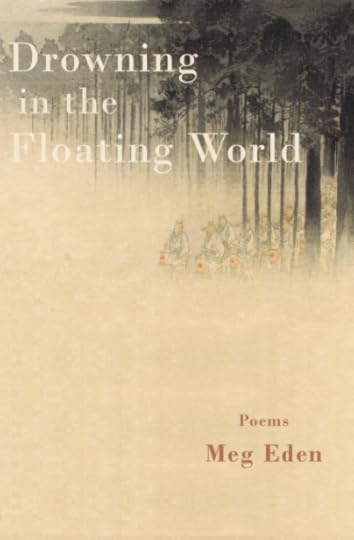 Drowning in the Floating World by Meg EdenWhat’s the title of your book? Fiction? Nonfiction? Poetry? Who is the publisher and what’s the publication date?
Drowning in the Floating World by Meg EdenWhat’s the title of your book? Fiction? Nonfiction? Poetry? Who is the publisher and what’s the publication date?My latest book is a poetry collection called Drowning in the Floating World. It was published in March 2020 by Press 53.
In a couple of sentences, what’s the book about?The collection is about the 2011 Tohoku Earthquake and Fukushima Powerplant Disaster. It explores ideas of disaster, ruin, water, man’s impact on the environment, and hope—how do we find hope in tragedy?
What’s the book’s genre (for fiction and nonfiction) or primary style (for poetry)?I like to write narrative poems—I want readers to be able to access and engage with the content whether they like poetry, have studied it, or not. There are some literal poems, as well as surreal—I drew a lot of inspiration from Japanese mythology, as well as the incredible Japanese poet Shuntaro Tanikawa, who puts the magical in the everyday.
What’s the nicest thing anyone has said about the book so far?Well first off, the nicest thing said was by Chris Forrest at Press 53—that he wanted to publish it! I couldn’t have asked for a more thoughtful, thorough editor than Chris. He gave these poems so much love. I’m eternally grateful.
But from reviewers, the nicest thing they’ve said is that that they get it. That they see what I’m trying to say. The poetry community is amazing, I’ve gotta say. People have really been so kind, generous and thoughtful when reading these poems, which is the best thing I could ever ask for.
Some of my favorite reviews were published in Free State Review, The Sundress Blog, and DMQ Review
What book or books is yours comparable to or a cross between? [Is your book like Moby Dick or maybe it’s more like Frankenstein meets Peter Pan?]Patricia Smith’s Blood Dazzler meets the aesthetics of Shuntaro Tanikawa. If you like Haruki Murakami’s work, you may like the Japanese magical realism vibe in these poems too.
Why this book? Why now?I couldn’t get away from this content. It haunted me until I wrote it out. 2011 was just 10 years ago but it’s so easy to forget and move on. We cannot forget disaster and the people affected. We have to educate ourselves and listen and remember.
The book came out right when the pandemic was hitting the states—and suddenly, these poems about disaster and fear of contamination struck home in a whole new way, both with me and my readers. I started reading “Response to the Brother Who Wants to Move in After the Earthquake” at online events—the poem is about fear about radioactive contamination from Fukushima—and it suddenly felt even more pertinent in a time of fear about COVID and social distancing.
Other than writing this book, what’s the best job you’ve ever had?I’ve had so many great jobs; I’m so grateful. I’ve worked as a research assistant at a language lab. I’ve had training for running an fMRI scanner. I’ve sold advertisements for a literary organization—and worked writing conferences as part of my job! Right now, I’m a creative writing teacher and that’s my favorite job in the world. Getting to be a part of other writers’ writing journeys is the most rewarding experience.
What do you want readers to take away from the book?I want readers to learn about 3/11, but I also want readers to contemplate hope—where do we find hope in tragedy? Where do you as a reader find meaningful hope? My last section of poems explores the floating world—the Edo period term for the fleeting pleasure of an Epicurean zeitgeist—and as I played with that word floating, I thought about literal floating in water—how water kills, but it also sustains—as well as this term floating world, and how we can seek hope and meaning in ultimately fleeting ways. It’s easy to seek fleeting comfort and try to forget our painful experiences, but does this serve long-term value? If we forget and can’t reconcile with pain—and in the case of the tsunami, learn and teach the next generation how to minimize the effects of disaster—what is the gain?
What food and/or music do you associate with the book?This book transports me back to Japan, my heart home. I want onigiri, katsudon, tempura, miso soup—all that good stuff! Music-wise, I listened to the Dear Esther and FTL soundtracks quite a bit while writing, so those are what come to mind—though I also listened to some old Japanese pop classics like “Sukiyaki” (Ue o Muite Arukō) throughout. And of course, NHK’s collaborative single “Hana Wa Saku” in response to 3/11 always comes to mind.
What book(s) are you reading currently?I just finished The Land of Forgotten Girls by Erin Entrada Kelly, and am currently reading Chlorine Sky by Mahogany L. Browne and Genesis Begins Again by Alicia D. Williams.
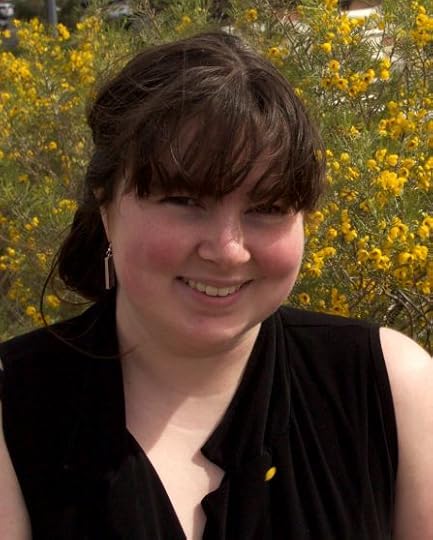 Meg Eden
Meg EdenLearn more about Meg at her website.
Buy the book from the publisher, Politics & Prose Bookstore, or Bookshop.
Check out her upcoming events.
February 16, 2021
Five Ways of Looking at Short Fiction
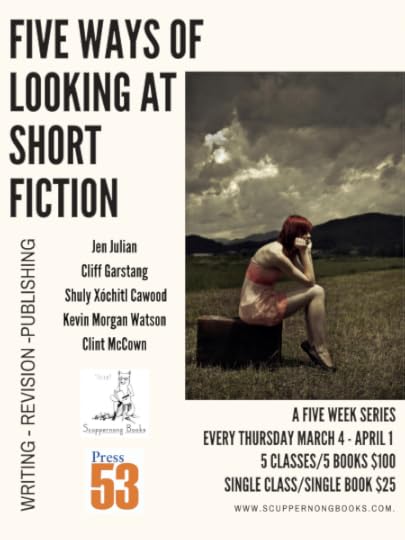
Here’s a great deal: A five-week workshop (including 5 books) for just $100. You can also register for individual sessions for $25 for one workshop and a book. The series is sponsored by Scuppernong Books (of Greensboro NC) and Press 53 and runs every Thursday night at 7 pm on Zoom from March 4 to April 1.
I will be teaching one of the sessions. Other workshop leaders include Clint McCown, Jen Julian, Shuly Cawood, and Kevin Morgan Watson. Topics include: “Maps of the Mind: How I Build Place in Fiction,” “In Praise of Unlikeable Characters: Life Isn’t Perfect and Neither is Fiction,” “It’s All in the Details,” “Dos and Don’ts of Submitting,” and Revision.
For a full description of the workshops, which are limited to twelve participants each and are fully interactive, visit the Scuppernong Website. Remember, you can sign up for one or more workshops for $25 each (including a book), or get the whole five-part series for $100 (including five books).
I hope to see you in the workshop!
February 15, 2021
I’ve Got Questions for Ginger Moran
Editor’s Note: This exchange is part of a series of brief interviews with emerging writers of recent or forthcoming books. If you enjoyed it, please visit other interviews in the I’ve Got Questions feature.
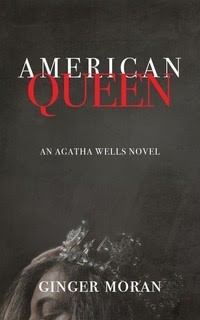 American Queen by Ginger MoranWhat’s the title of your book? Fiction? Nonfiction? Poetry? Who is the publisher and what’s the publication date?
American Queen by Ginger MoranWhat’s the title of your book? Fiction? Nonfiction? Poetry? Who is the publisher and what’s the publication date?American Queen: An Agatha Wells Novel. Published by BlueBullsEyePress in November 2020.
In a couple of sentences, what’s the book about?Agatha Wells may be a prominent fixture in the DC social scene … but she is so much more. As the wife of a spy, Agatha has learned to recognize when pieces don’t fit together. Speaker of the House Adam Trent’s mysterious wife Ana is one of those puzzles. As their social circles continue to cross, Agatha begins to suspect that Ana is playing a dark game. Will it drag Agatha—or her husband—in?
This is a novel about faith and doubt and about the hidden motives behind the choices we make—hidden even from ourselves. It takes place in Washington, DC in the contemporary political world but with a decisively domestic focus—the main character is a DC socialite by birth, with a spy husband and five children. She also has a Ph.D. in Behavioral Economics, an English nanny, a Jesuit priest academic advisor, and a shrewd DC socialite mother as part of her team. She has a hunger to know that converges with friendship, the survival of her marriage, and international politics.
What’s the book’s genre (for fiction and nonfiction) or primary style (for poetry)?American Queen is a cross between psychological thriller and spy novel, with a woman sleuth in the central role.
What’s the nicest thing anyone has said about the book so far?If I may quote, my esteemed colleague Lisa Tener posted this extremely humbling review:
Ginger Moran’s second novel is un-put-downable. The delightfully quirky narrator offers a fresh voice–at once deeply feminine, maternal, brilliant, witty and iconoclastic. I found certain passages stopped me in my tracks they were so beautifully crafted. The dialogue is fast paced and witty and I’m sure I missed half of the cleverness and layered meanings that a second reading would uncover. The domestic scenes and fabulous parties beautifully mirror the political intrigue and add a depth that is not always seen in this genre. And the relevancy of this book for our times makes it a must-read. Highly, highly recommended!
What book or books is yours comparable to or a cross between? [Is your book like Moby Dick or maybe it’s more like Frankenstein meets Peter Pan?Might be what would happen if Virginia Woolf wrote The Manchurian Candidate.
Why this book? Why now?I started writing American Queen in 2016, right after the election. As a long-time political activist, I was intrigued by the question of why people make choices that undermine their own interests. I considered looking at the question through the lens of philosophy, theology, or psychology, but ended up using a fairly new discipline, Behavioral Economics, that looks deeply into the “bounded rationality” of choices people make, very rarely informed by careful critical thinking, that have powerful, practical consequences. Plus I wanted to write about how DC high society and politics coincide.
Other than writing this book, what’s the best job you’ve ever had?I taught for 8 years at Fisk University, one of the first historically black universities and intellectual home of WEB Dubois. I was able to explore my favorite topics—African American women writers, the creative writing of African American writers as models for current students, British lit. My students were the best I have ever had—and I have had many terrific students. They loved a challenge, loved give and take, and taught me at least as much as I taught them.
What do you want readers to take away from the book?Well, first, I hope people enjoy the story itself—an intellectual, colorful character who has somehow found herself in the weird world of being married to a spy and the probably equally weird world of being a mother of five boys. In a time of political turmoil, Agatha Wells finds that her friendship with the mysterious wife of a fast-climbing politician becomes the turning point of international politics. I hope that people ask themselves questions about what goes into making moral choices and good governance, from world politics to good parenting.
What food and/or music do you associate with the book?Oh, gosh, the food was the most fun. There are several high society parties in the book, with unique menus and political tensions served up, but my favorite is the Moroccan Halloween Party Agatha gives at the beginning of the book. I had a great partner in fictional food crime who created the menu for me and it sounds so good we have promised that we will make it for a party we give as soon as we are out of covid prison.
What book(s) are you reading currently?I am a longtime British mystery devotee and I read all of the great mysteries, old and new. The new includes Kate Atkinson’s Jackson Brodie series, and anything Denise Mina and Tana French write. I also love Robert Galbraith’s Cormoran Strike series. That is JK Rowling writing as Galbraith. She is a brilliant story-teller. But, honestly, I have taken refuge in PG Wodehouse a whole lot lately, for a good hard laugh and a world where everything works out.
 Ginger Moran
Ginger MoranLearn more about Ginger at her website.
Subscribe to her newsletter
Follow her on Facebook, Twitter, and LinkedIn.
Buy the book at Amazon.
February 10, 2021
I’ve Got Questions for Gerry Wilson
Editor’s Note: This exchange is part of a series of brief interviews with emerging writers of recent or forthcoming books. If you enjoyed it, please visit other interviews in the I’ve Got Questions feature.
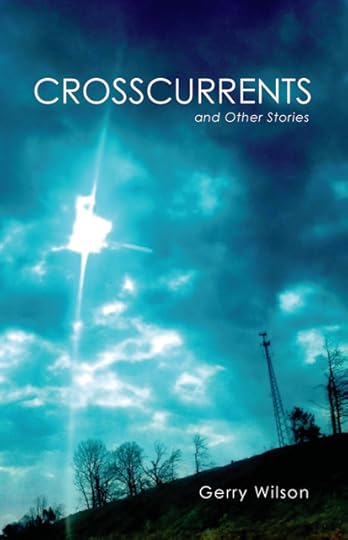 Crosscurrents and Other Stories by Gerry WilsonWhat’s the title of your book? Fiction? Nonfiction? Poetry? Who is the publisher and what’s the publication date?
Crosscurrents and Other Stories by Gerry WilsonWhat’s the title of your book? Fiction? Nonfiction? Poetry? Who is the publisher and what’s the publication date?Crosscurrents and Other Stories was published by Press 53 in 2015.
In a couple of sentences, what’s the book about?All the women in Crosscurrents deal with loss and betrayal of one kind or another. All are survivors, but at what cost?
What’s the book’s genre?Literary fiction
What’s the nicest thing anyone has said about the book so far?Lynne Barrett—such a fine fiction writer—says this about Crosscurrents:
Gerry Wilson’s spare, lucid prose and inventive story design illuminate the secret truth that, even within the loops and tangles of relationships and family, all of us are strays, wild, fragile, and hungry. These stories explore losses and the discoveries loss impels, yet Crosscurrents is, above all, about connection—never easy, often found where least expected, but giving life surprising grace.
Otherwise, the nicest comment came from a reader who said she knew the women in these stories. She recognized them.
What book or books is yours comparable to or a cross between?Crosscurrents could be a cross between Michael Knight’s Eveningland and Shuly Cawood’s A Small Thing to Want. I like to think these stories are reflective of Alice Munro’s work, especially the stories in Dear Life and The Progress of Love. Flannery O’Connor’s and Eudora Welty’s short stories are huge influences. Favorites: O’Connor’s “The Life You Save May Be Your Own” and Welty’s “June Recital.”
Why this book? Why now?Crosscurrents predates the #MeToo movement, but there’s something of that struggle in these stories. All the main characters are women who encounter great obstacles to claiming (or re-claiming) their lives. As Antonya Nelson said about the book, “[The] characters are in mortal combat, most often with themselves.”
Other than writing this book, what’s the best job you’ve ever had?Maybe it sounds corny, but my best job was being a mother to my four sons. I was a single mother for much of their growing up; it wasn’t easy, and I wasn’t always great at it! But that may be the one thing that most defines me—or at least it defined my early adulthood.
As for a “job” job: In mid-life, I went back to school for an MA in English and began teaching high school students. I didn’t have a creative writing background, so when the opportunity arose to start a writing program for the school and teach creative writing, I had to figure out how to teach kids to write. I read everything I could get my hands on about teaching writing; I tapped the brains of other teachers; and as my students wrote, I started writing, too. I credit a “writing for teachers” workshop at Bard College in the 1990s for lighting the spark for my own fiction.
I wouldn’t necessarily say that writing is the “best” job. I’m drawn to it; it seems to be what I have to do, whether I publish or not. But when a story works, it’s the most satisfying thing in the world.
What do you want readers to take away from the book?I want all my readers—men as well as women—to come away from these stories feeling that they have been in touch with real human experience.
What food and/or music do you associate with the book?In “Mating,” Gail is more concerned with feeding the animals in the rundown refuge than feeding herself. In “From This Distance,” though—set on a farm in the 1950s—Iris labors all day over a meal she hopes will mend the distance between her and her husband after the death of their child. Iris’s meal consists of ham, fresh sliced tomatoes from the garden, potato salad, homemade bread, and preserves she’s made herself. I can imagine the sisters in “Sparrow, Sparrow” sitting down to collards and cornbread. So Southern food; definitely Southern.
The soundtrack for these stories is a wild mix, from classical piano and cello to solo acoustic guitar to old rock standards with a little country thrown in for good measure—as vastly different as the characters in the stories.
What book(s) are you reading currently?I’m reading Julia Alvarez’s Afterlife (novel) and Ron Rash’s In the Valley (stories). Other recent reads include Jack by Marilynne Robinson, Other People’s Pets by R. L. Maizes, The Vanishing Half by Brit Bennett, and American Dirt by Jeanine Cummins. I liked them all. I learned from them! Two recent nonfiction books that absolutely blew me away: Bryan Stephenson’s Just Mercy and Natasha Trethewey’s Memorial Drive.
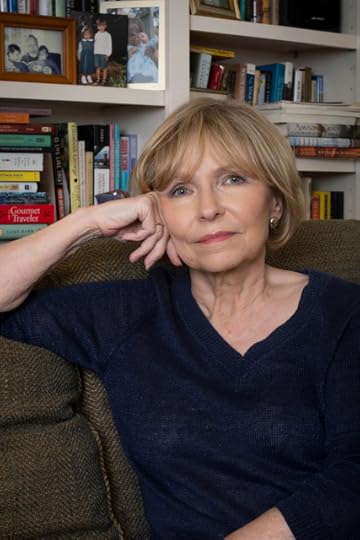 Gerry Wilson
Gerry WilsonLearn more about Gerry at her website.
Follow her on Facebook and Twitter.
Read a review of the book here.
February 5, 2021
I’ve Got Questions for Christina Chiu
Editor’s Note: This exchange is part of a series of brief interviews with emerging writers of recent or forthcoming books. If you enjoyed it, please visit other interviews in the I’ve Got Questions feature.
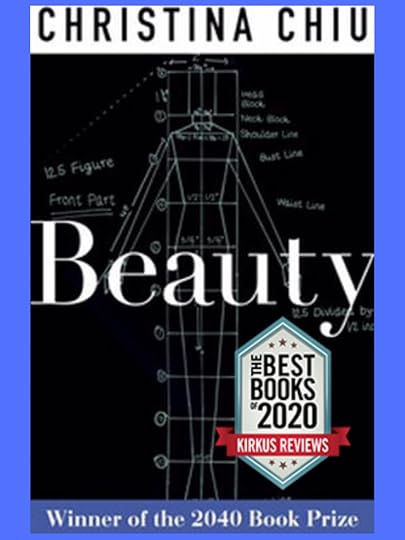 Beauty by Christina ChiuWhat’s the title of your book? Fiction? Nonfiction? Poetry? Who is the publisher and what’s the publication date?
Beauty by Christina ChiuWhat’s the title of your book? Fiction? Nonfiction? Poetry? Who is the publisher and what’s the publication date?Beauty. Fiction.
Publisher: 2040Books, imprint of Santa Fe Writers Project
In a couple of sentences, what’s the book about?Amy Wong is an up-and-coming designer in the New York fashion industry — she is young, beautiful, and has it all. But she finds herself at odds with rival designers in a world rife with chauvinism and prejudice. In her personal life, she struggles with marriage and motherhood, finding that her choices fall short of her traditional family’s expectations. Derailed again and again, Amy must confront her own limitations to succeed as the designer and person she wants to be.
What’s the book’s genre (for fiction and nonfiction) or primary style (for poetry)?Literary Fiction.
What’s the nicest thing anyone has said about the book so far?Remember when we talked about getting authors to write blurbs for us? Well my publisher kept pushing me for more. As a result, a lot of these have not seen the light of day, which has been hugely embarrassing. So I’ll share one of those:
“Chiu offers a series of brilliantly curated moments, vivid examinations of the turning points in an extraordinary woman’s life. Chiu fearlessly illuminates how love, integrity, and creativity can shape a world and bring wisdom.”
— Lan Samantha Chang, author of Hunger and Inheritance
However, the best blurb I got was probably this one:
“Christina Chiu’s Beauty is beautiful in the way of a scalpel blade. It’s that sharp and precise, that lacerating, that true.”
— Michael Cunningham, Pulitzer Prize-winning author of The Hours
What book or books is yours comparable to or a cross between? [Is your book like Moby Dick or maybe it’s more like Frankenstein meets Peter Pan?]Work that has influenced my writing: Drown by Junot Diaz, House on Mango Street by Sandra Cisneros, Typical American by Gish Jen, The Hours by Michael Cunningham, “Wants” (Enormous Changes at the Last Minute) by Grace Paley
Why this book? Why now?This book speaks to the intersections of race and gender. It shows how stereotypes distort people’s perceptions of the “other,” and more importantly, how those who get stereotyped live with—and resist—living within those boundaries.
Other than writing this book, what’s the best job you’ve ever had?It’s a tie: I design and make boots, which is a really rewarding endeavor because it involves both form and function. For me, it’s a form of visual art, and when the design successfully reflects the wearer, I feel like I’ve drawn out the beauty in that person. I also teach for Prison Writes, an organization that brings creative writing to those who are incarcerated or formerly incarcerated so that they can voice their own stories. One of my students found writing so fulfilling that he went back to finish college!
What do you want readers to take away from the book?Trust in your beauty. Never give up. On the way to realizing your dream, you may find that you are in it!
What food and/or music do you associate with the book?There is a playlist for Beauty here!: http://www.largeheartedboy.com/blog/archive/2020/06/christina_chius.html
What book(s) are you reading currently?Another Country by James Baldwin, On Beauty and Being Just by Elaine Scarry, Face by Aimee Liu, and Ted Talks by Chris Anderson.
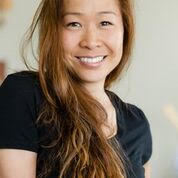 Christina Chiu
Christina ChiuLearn more about Christina on her website.
February 3, 2021
I’ve Got Questions for Jan Alexander
Editor’s Note: This exchange is part of a series of brief interviews with emerging writers of recent or forthcoming books. If you enjoyed it, please visit other interviews in the I’ve Got Questions feature.
 Ms. Ming’s Guide to Civilization by Jan AlexanderWhat’s the title of your book? Fiction? Nonfiction? Poetry? Who is the publisher and what’s the publication date?
Ms. Ming’s Guide to Civilization by Jan AlexanderWhat’s the title of your book? Fiction? Nonfiction? Poetry? Who is the publisher and what’s the publication date?Ms. Ming’s Guide to Civilization. It’s a novel published by Regal House Publishing in September 2019. It was a Leapfrog Press Fiction contest semi-finalist.
In a couple of sentences, what’s the book about?Two broke young women—Ming, who is from China, and Zoe, from Manhattan—visit the bleak Sichuan outpost where Ming was born and meet a legendary immortal who has an ambitious plan to save the world from capitalism run amok. With a little magic and a little private equity, the three of them turn hyper-capitalist China into a paradise for artists, thinkers, and lovers—but it’s a short-lived paradise once human nature begins to intervene.
What’s the book’s genre (for fiction and nonfiction) or primary style (for poetry)?Literary fiction with a mash-up of political satire and magical realism.
What’s the nicest thing anyone has said about the book so far?“The first line of the book, ‘Ming Cheng was born in the cruelest place on earth,’ is like a starter pistol, setting this zany, beautiful book into motion. Jan Alexander is a deft story-teller, who manages to create a world that is both wild and breathtaking. She takes us across this alternate world, and we willingly go. I warn you though. If you pick up ‘Ms. Ming,’ you won’t be able to put her down.” That was from the wonderful writer N. West Moss, author of The Subway Stops at Bryant Park.
What book or books is yours comparable to or a cross between? [Is your book like Moby Dick or maybe it’s more like Frankenstein meets Peter Pan?]It’s what might happen if you crossed Thomas Piketty with Margaret Atwood and sent them to China.
Why this book? Why now?China hand Andrew Singer wrote of it: “Do you want to make the world a better place? Well, Ms. Ming’s Guide To Civilization will show you a way.” At a moment when we have no choice but to make the world a better place, Ms. Ming presents a not-so-modest proposal for solving the problem of economic inequality. There’s also a worst-nightmare scenario about a right-wing-motivated brain-washing vaccine in search of a pandemic, although I wrote the story before I ever imagined we’d have a real pandemic. (And I am planning to get a vaccine as soon as I can.)
Other than writing this book, what’s the best job you’ve ever had?That would have to be the period when I was writing articles about places that hardly any Westerners wanted to go. A friend and I had a plan to write about the train from China to Kazakhstan if we could get on it, but we were told the Kazakh border was closed due to a cholera epidemic, so we re-routed to the icy mountain pass into Kyrgyzstan, where we were kind of stranded for four days and made friends with the local customs officials and some very drunk Russian truckdrivers. On another trip I rode a rickety bus to a remote Sichuan Village where the clouds writhed like ghosts and no one would talk about the strange hermit in the pagoda; those images were the starting point for this novel. More soberingly, I spent time hanging around with Uighurs in Xinjiang who were prepared to give their lives to secede from China.
What do you want readers to take away from the book?A message for all young women everywhere with big dreams: You don’t have to settle for the world the way it is.
What food and/or music do you associate with the book?Spicy Sichuan noodles, cocktail glasses clinking, and Rhapsody in Blue.
What book(s) are you reading currently?I’m going back and forth between The Empress of Salt and Fortune by Nghi Vo, a speculative tale of an unwilling empress in Imperial China who manages to overthrow a dynasty, and Caste by Isabel Wilkerson. Caste shatters any remaining illusions I had about equal opportunity in America; every white American should read it.
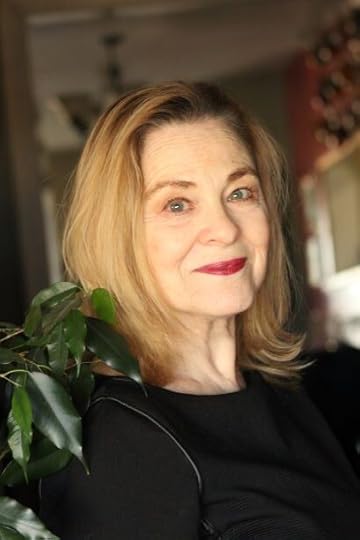 Jan Alexander
Jan Alexander(photo by Fred Gurner)
Learn more about Jan at her website.
Follow her on Twitter and Facebook.
Buy the book from the publisher.
February 1, 2021
I’ve Got Questions for Lou Ella Hickman
Editor’s Note: This exchange is part of a series of brief interviews with emerging writers of recent or forthcoming books. If you enjoyed it, please visit other interviews in the I’ve Got Questions feature.
 she: robed and wordless by Lou Ella HickmanWhat’s the title of your book? Fiction? Nonfiction? Poetry? Who is the publisher and what’s the publication date?
she: robed and wordless by Lou Ella HickmanWhat’s the title of your book? Fiction? Nonfiction? Poetry? Who is the publisher and what’s the publication date?The title is she: robed and wordless published by Press 53 in 2015. It is a book of poetry.
In a couple of sentences, what’s the book about?The poems give voice to many women of the Bible in the form of dramatic monologues.
What’s the book’s genre (for fiction and nonfiction) or primary style (for poetry)?It is a book of poetry and the form is dramatic monologue
What’s the nicest thing anyone has said about the book so far?“I can really identify with some of these women.”
What book or books is yours comparable to or a cross between? [Is your book like Moby Dick or maybe it’s more like Frankenstein meets Peter Pan?]Tom Lombardo, my poetry editor, mentioned it was similar to The World’s Wife by Carol Ann Duffy. I also found three other books that were also similar to mine: Anarcha Speaks by Dominique Christina, Mend by Kwaya Fagin Maples, Patient.:poems by Bettina Judd.
Why this book? Why now?Good question. I wish I knew the answer.
Other than writing this book, what’s the best job you’ve ever had?I was in religious retail for several years.
What do you want readers to take away from the book?What they need when they read the poems. For example, someone has walked in my shoes and survived. Or perhaps, “Wow, this expresses how I feel.”
What food and/or music do you associate with the book?One piece of music I associate with the book is Jessye Norman’s performance of “Mon Coeurs’ouvre à ta Voix” (“Softly Awakes my Heart”) from the opera Samson and Delilah byCamille Saint-saëns.
What book(s) are you reading currently?Elizabeth Bishop: The Complete Poems—1927-1979 and The Meaning of Mary Magdalene by Cynthia Bourgeault.
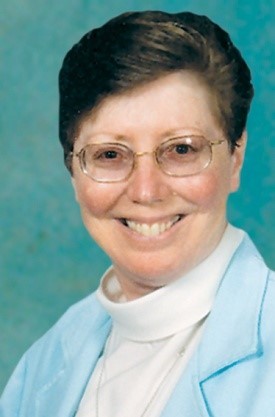 Lou Ella Hickman
Lou Ella HickmanLearn more about Lou Ella and purchase the book from Press 53.
The book is also available from Bookshop.
January 31, 2021
2021 Reading–January
Only five books to start the new year, but I’m close to finishing a couple of others, so my total for February might be higher.
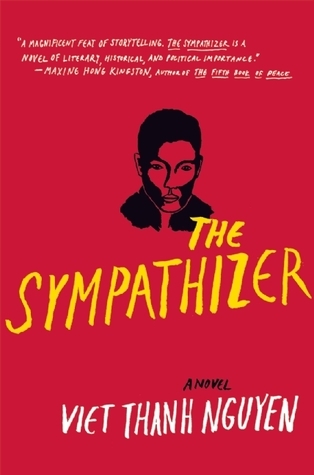
The Sympathizer by Viet Thanh Nguyen won the Pulitzer Prize a few years ago, and I’d say that was well deserved. The narrator is in a prison camp giving his “confession” to the commandant, and that confession makes up most of the book, although the last quarter goes beyond that. We learn early on that he was an agent of the North embedded in the Southern army and fled with his commanding general when Saigon fell. He ended up in Southern California, first in a refugee camp and then in a minimum wage job working for the Department of Oriental Studies at the same college he had attended years earlier on a scholarship arranged by the CIA, but still doing the General’s bidding. Also, secretly reporting to the Communists about the activities of the refugees. There is a wonderful twist that I did guess at about halfway through the book, and it makes the book’s climax all the more dramatic.
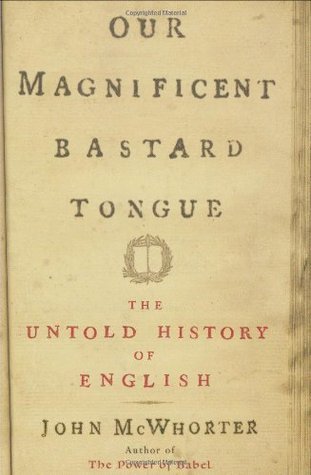
Our Magnificent Bastard Tongue: The Untold History of English by John McWhorter is a short book about the development of English from its proto-Germanic roots brought to the island that is now England by the Angles and Saxons. McWhorter has a sharp wit and so the story is often funny, mostly at the expense of people—pedants and other linguists—with whom he disagrees. For example, his main argument in the first half of the book is that English was shaped by speakers of the Celtic languages with whom the Angles intermingled, a position of which he seems absolutely certain but that (he says) is dismissed by other historians of the language. He goes on to dismiss a variety of other theories and hypotheses about various aspects of our grammar in comparison to other Germanic languages. I can’t say for certain that he’s right, but he does make compelling arguments. While the influence of Celtic languages on English is interesting, if controversial, the last chapter on how the Germanic languages branched away from the other Indo-European languages in various aspects is fascinating. McWhorter hypothesizes that ancient Phoenicians arrived in the area that is now Denmark and vicinity and that their semitic language mixed with the language of the locals resulting in a number of consonant shifts and new words that other Indo-European languages such as the Romance languages do not have. Not much hard evidence, but interesting to think about.
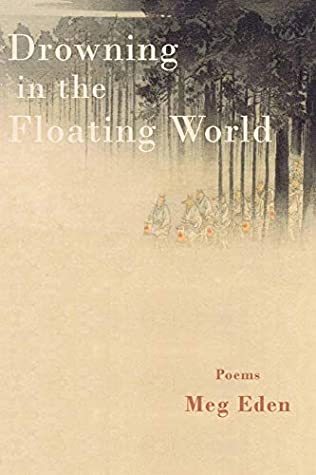
Drowning in the Floating World by Meg Eden is a collection of poems set against the backdrop of the 2011 Great East Japan Earthquake and Tsunami. As the tenth anniversary approaches, I read these poems with a kind of terror. The disaster killed at least 28,000 people and continues to impact Japan and the world today. The poems are stark and often shocking, which gives them a rare kind of power. The catastrophe was almost unimaginable—watching the footage of the tsunami destroying cities is very painful—and yet the poems give it a human scale. The pain is focused on the people who suffered, who died or who lost loved ones. It’s a challenging book, but worth the read.
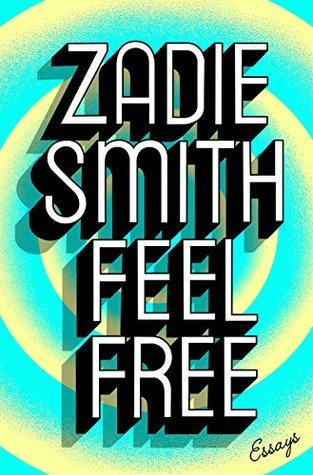
Feel Free by Zadie Smith was my book club’s selection for January 2021. It’s a fairly long book, with lots of essays on a variety of topics, including a lot of cultural criticism that reveals much about her along the way. Smith is terrific. The book is divided into sections, grouping essays around different topics. The broadest category, called “In the World,” contains essays about bigger issues and events. The next three are generally about culture—one on theater, one on art, and one on books—and the last is more personal, dealing with her own life, family, and travels. I’m not sure what the book club will talk about, but I plan to read more of Smith’s fiction (because I’ve read only her novel Swing Time, and I liked it).
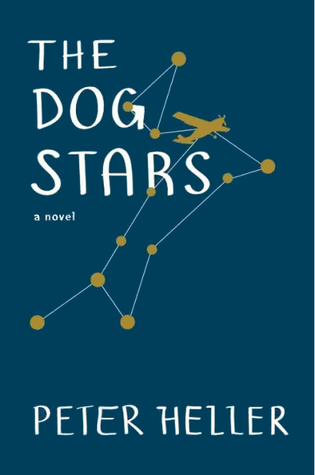
The Dog Stars by Peter Heller is a post-apocalyptic story, and as soon as I realized that I regretted my decision to read it. (Because aren’t we IN the post-apocalypse?) But I read on just to get it over with. It’s nine years into a flu pandemic that killed just about everyone and destroyed civilization, but Hig, whose pregnant wife died from the flu, is holed up in an abandoned private airport community with another straggler, Bangley, a gruff old guy with a military background whose murky past is only hinted at. Oh, and many other species have suffered similar fates, either from the flu or global warming, or both. So Hig and Bangley are just trying to survive, although why they want to keep living is a serious question that they don’t seem to address. In the process, they kill off visitors who are more than likely out to kill them and take what they’ve got, which is a working airplane, fuel, guns, and food. But Hig begins to long for contact with the outside world, so he goes off in search of it. Heller has written a lot of non-fiction about the environment and the outdoors, and he writes about the setting of this story beautifully. It’s less effective when he’s trying to show us emotions, in which case it gets pretty melodramatic.
January 29, 2021
I’ve Got Questions for Bonnie Graves
Editor’s Note: This exchange is part of a series of brief interviews with emerging writers of recent or forthcoming books. If you enjoyed it, please visit other interviews in the I’ve Got Questions feature.
 Catch Me When I Fall by Bonnie GravesWhat’s the title of your book? Fiction? Nonfiction? Poetry? Who is the publisher and what’s the publication date?
Catch Me When I Fall by Bonnie GravesWhat’s the title of your book? Fiction? Nonfiction? Poetry? Who is the publisher and what’s the publication date?CATCH ME WHEN I FALL (Fitzroy Books, 2019) is middle-grade historical fiction.
In a couple of sentences, what’s the book about?Set in Racine, Wisconsin during the Great Depression, Catch Me When I Fall is the story of one gutsy twelve-year-old girl’s quest to learn the identity of her father, the father her mother refuses to talk about. When Emma finds a photograph hidden in her mother’s bureau AND spots a circus poster featuring Filippo the Flying Wonder, she believes she’s stumbled on the truth. The aerialist’s resemblance to the man in the secret photo is too close to be coincidence. Rebelling against her Mother’s warning not to go near the circus, Emma disguises herself as a boy and lands a job with the circus, determined to unravel the dark mystery that haunts her. It is here, amidst the sawdust and illusions of circus life, that Emma makes discoveries about her past that ultimately help her accept herself for who she truly is.
What’s the book’s genre (for fiction and nonfiction) or primary style (for poetry)?Middle grade mystery, adventure, historical fiction
What’s the nicest thing anyone has said about the book so far?That is hard to narrow down, but here are two, one from a school librarian and the other from a professor of adolescent literature. “Emma’s adventure breathes with life as she enters a vibrant circus culture filled with people and animals wrought with such detail that they’re rendered unforgettable.” “Bonnie Graves masterfully creates an indelible heroine in Emma Monroe, a plucky twelve-year-old with a backstory that will break your heart and a sense of humor and adventure that will make you giggle.”
What book or books is yours comparable to or a cross between? [Is your book like Moby Dick or maybe it’s more like Frankenstein meets Peter Pan?]Ann of Green Gables meets Water for Elephants
Why this book? Why now?I began writing this book many years before it was finally published. The initial spark of the idea for Catch Me When I Fall came from an uncle’s memoir about his experiences as a young boy watering the elephants for a traveling circus in hopes of earning a ticket to the Big Show. The anecdote was so rich in detail and humor it just begged to become a story for young readers. I didn’t feel I could write it from a boy’s point of view, the way my uncle had, so I needed a heroine, someone brave enough to dress as a boy to get a circus job, someone who desperately needed that circus job. That someone turned out to be 12-year-old Emma Monroe, a fearless red-head, who’s determined to learn the identity of her father, the man her mother refuses to talk about.
Why now? In order to continue shattering that glass ceiling, girls need to see themselves in stories acting with courage and conviction, breaking through accepted norms and boundaries when necessary to achieve a worthwhile goal. Catch Me When I Fall may have taken place in the 1930s, but Emma’s story of determination and courage is still relevant today.
Other than writing this book, what’s the best job you’ve ever had?Oh, that’s a hard one. My first job was working at Disneyland in Anaheim, CA. How I loved strolling down Mainstreet in the Magic Kingdom to begin work, smelling the popcorn and cotton candy, spying the Matterhorn and hearing the delighted shrieks from the bobsled riders, walking through Cinderella’s castle while the refrains of When You Wish Upon a Star trickled from hidden speakers. My second dream job was being a teacher of third graders at a small primary school in Mountain View, CA. What a joy it was to be greeted every school day morning by those bright and eager faces.
What do you want readers to take away from the book?That is a good, and also difficult, question. I want them, first and foremost, to be so engrossed in Emma’s story that they feel as if they are living her story with her, to understand and empathize with her motivations and actions, to come to realize that life and relationships are complicated, but that love and family, in the end, are what matter most, no matter who may comprise that family.
What food and/or music do you associate with the book?Hot dogs, popcorn, cotton candy and music from the calliope!
What book(s) are you reading currently?Right now, I’m reading Trials of the Earth, a memoir by Mary Mann Hamilton, pioneer of the American south, a story of unimaginable hardship and amazing perseverance. Next, I think I’ll move on to something a bit lighter, a book recommended recently by my 8-year-old grandson—The Candy Makers by Wendy Mass. It sounds delicious!
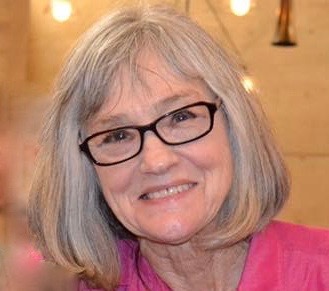 Bonnie Graves
Bonnie GravesLearn more about Bonnie at her Facebook Page.
January 27, 2021
I’ve Got Questions for Valerie Nieman
Editor’s Note: This exchange is part of a series of brief interviews with emerging writers of recent or forthcoming books. If you enjoyed it, please visit other interviews in the I’ve Got Questions feature.
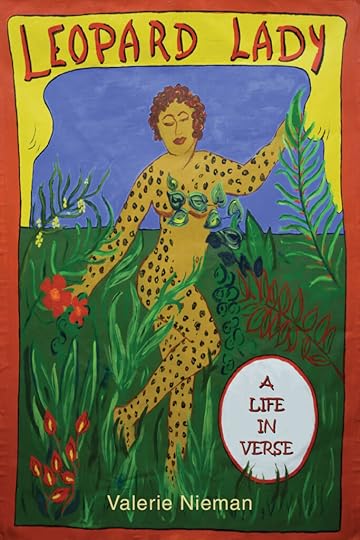 Leopard Lady by Valerie NiemanWhat’s the title of your book? Fiction? Nonfiction? Poetry? Who is the publisher and what’s the publication date?
Leopard Lady by Valerie NiemanWhat’s the title of your book? Fiction? Nonfiction? Poetry? Who is the publisher and what’s the publication date?Leopard Lady: A Life in Verse
Poetry
October 2018
In a couple of sentences, what’s the book about?In midcentury America, two seekers find their way to a traveling show and an unfolding social, cultural, and spiritual awakening. Dinah, the Leopard Lady, flees a Dickensian childhood as an orphan in Depression-era Appalachia, rising above abuse and abandonment to find self-awareness and even love, while Jonathan, the Professor, mirrors her story as a fellow runaway, wounded in body and spirit, who finds a refuge in the sideshow.
What’s the book’s genre (for fiction and nonfiction) or primary style (for poetry)?As a novel-in-verse, it is of course narrative overall, with an arc covering several decades, but there are quite a number of purely lyrical poems as well, particularly Dinah’s responses to nature.
What’s the nicest thing anyone has said about the book so far?I had several truly lovely blurbs, for which I’m deeply grateful, but I’m always gobsmacked by a great review. “Dinah the Leopard Lady is after big things,” wrote Marly Youmans in the North Carolina Literary Review. “She splits open the world like a piece of fruit to get at the seeds of meaning…Dinah’s eagerness to eat the world (material and metaphysical) to its rind is her strength.” And Lisa Schaefer, the curator of the Coney Island Museum, commented: “Steeped in sideshow tradition, and addressing issues of race, gender, self-concept, and creative expression, your book is beautifully written.”
What book or books is yours comparable to or a cross between? [Is your book like Moby Dick or maybe it’s more like Frankenstein meets Peter Pan?]I don’t think it’s really like anything, though I can trace threads in journey-tales from Piers Plowman to Huckleberry Finn.
Why this book? Why now?I did not choose this book; it chose me. I was working in my journal one night when this voice began, strong and sure, a voice with Appalachian cadences telling a powerful story. I scribbled as fast as I could for as long as she spoke, 13 pages that included three poems almost whole and chunks of several more. But enthralling as this visitation was, I also had a strong impulse to turn away from it. Why me? Why now? Dinah slowly revealed her identity as a biracial woman from an era before mine. The carnival she called home was an alien world I’d seen only superficially. And so I focused on other projects, novels and other kinds of poems, but Dinah remained in my mind until I sat down and finished telling her story. With the last poem, that voice was gone, never to return.
Other than writing this book, what’s the best job you’ve ever had?It wasn’t a job, or at least a paying one, but I loved operating a small farm in West Virginia. Half a dozen beef cattle, a small orchard, berries, asparagus, herbs, and organic veggies. A wonderful part of that life was spending time in the woods, whether to gather berries or collect firewood or just wander.
What do you want readers to take away from the book?There are so many threads in Leopard Lady. I think readers come to this book, any book, and find what they need in its pages. This is a story of revelations and redemptions, a story about claiming your own self, at last, with neither shame nor pride.
What food and/or music do you associate with the book?Carnival food, of course! Candy floss (cotton candy) and funnel cakes and lemonade and wonderful greasy sausage sandwiches dripping with fried onions and peppers. Dinah also recalls her childhood helping put up food on the farm, from pickles to peaches to apple butter. She seeks out mayhaw jelly for The Professor, a folk remedy for heart problems which has scientific underpinning.
A playlist would be interesting to construct. Dinah was raised in a strict fundamentalist household in Appalachia, so hymns, probably unaccompanied, possibly even in the shape-note style. Once she joins the carnival, she would have been exposed to music of the day, including crooners of the pre- and post-war eras, jazz, popular tunes, and “hillbilly.” The Professor grew up in a well-to-do Episcopalian family and studied for the priesthood, so he’d know church music of a different sort.
What book(s) are you reading currently?World of Wonders, Aimee Nezhukumatathil
The Penguin Anthology of 20th Century American Poetry, ed. Rita Dove
New Writing Scotland Vol. 38 (full disclosure: I have an essay included)
I Mean You No Harm, Beth Castrodale (this is an ARC)
Drowning in the Floating World, Meg Eden
 Valerie Nieman
Valerie NiemanLearn more about Val at her website.



